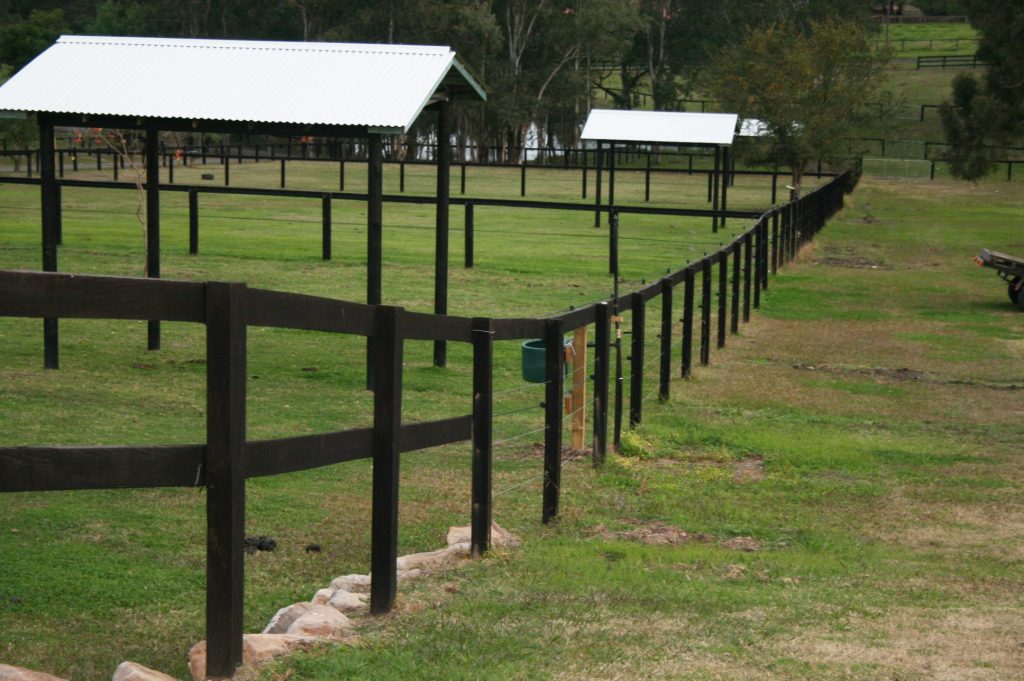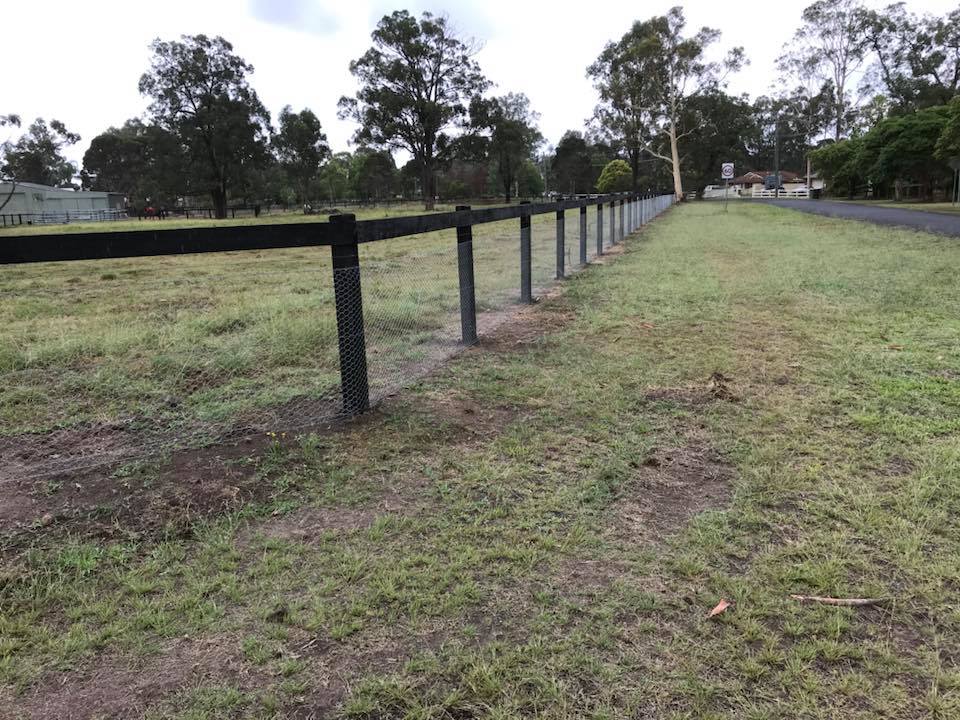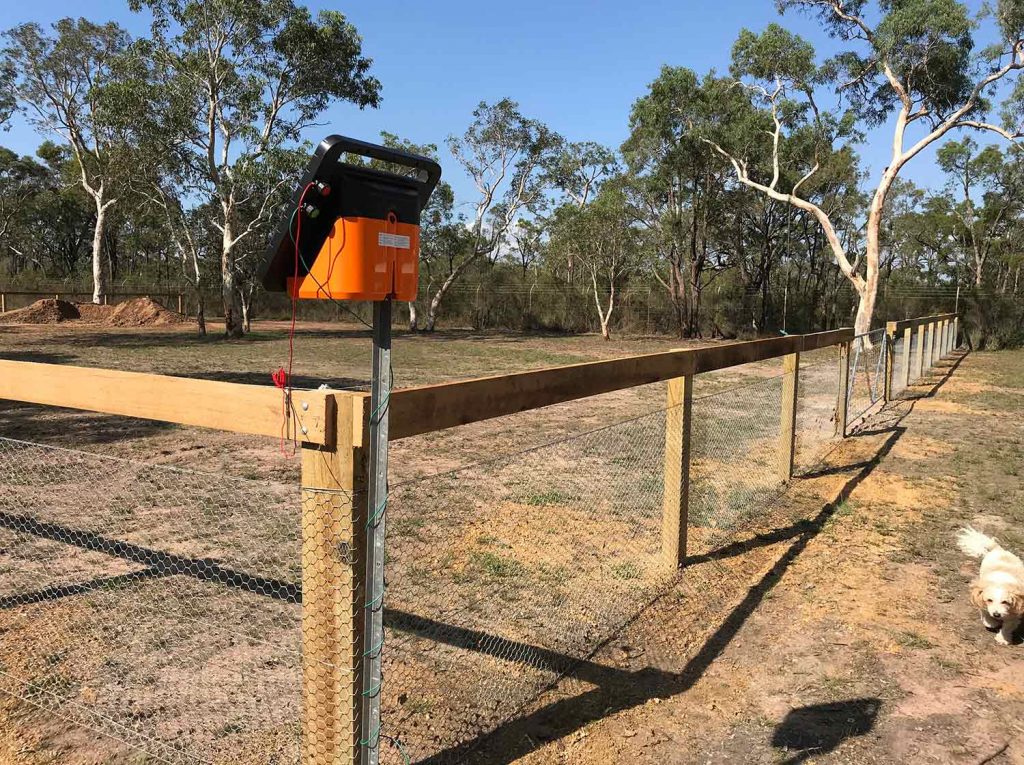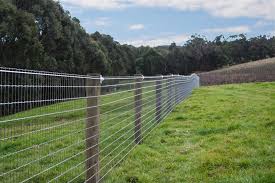The question “Is my horse safe in this paddock”? is always on a horse owner's mind. So much time and money is invested into our horses that their safety is paramount, and a lot of issues come installing incorrect horse fencing.
Sometimes, however, we do not perceive that the one thing that is keeping our horses safe from harm is the one thing that could do the most damage….the fence.

With so many different options available, the unsuspecting horse owner could inadvertently make a wrong decision as to what type of horse fencing is required. Fences that are designed for say pigs or goats are not suitable for horses. This is mainly the wire being discussed here, different types of netting contain different types of stock, you wouldn’t use pig wire to house chickens, as it would be a pointless exercise and the same goes with horses, you wouldn’t use pig wire to house horses due to the very large holes in the wire that your horse could easily put its foot through and become trapped, or worse struggle to free itself and become further injured.
Ideally, the fence you install needs to keep your horses safe and secure confining them to specific areas, providing the opportunity to graze and socialise. Horse safe pasture fencing should be highly visible, durable, and appear as a solid barrier, and if the horse does crash into it, the fence will withstand the force.

Traditionally post and rail fencing is the most common form of horse fencing, the material is readily accessible, and aesthetically acceptable for most rural properties and it is durable and able to withstand horses rubbing, leaning and pushing, given it has been installed properly. Netting or mesh can be used with this type of fencing as an electric standoffs to add some protection for your fence from the horses. This fence does require some maintenance, possibly painting with products like Stud X black fence paint, which not only protects the fence but also contains an anti-chewing agent called Crib X, which prevents or minimises horses wanting to chew on the fence timber.
Another option for painting could be a natural fencing stain which adds colour to a front boundary fence, perhaps to match those Merbau front doors.

Increasing in popularity, this horse fencing provides a physical barrier by giving the horse an electric shock when they touch it. This physical barrier can be installed onto any existing fence line, and can also be used to protect the fence from horses that love to chew, or lean on the fence, using fence posts as a scratching post and the use of electrics will limit contact between the horse and the fence but also if you are limiting contact with horses in another paddock this solution works very well.
Electric fencing also provides a highly transportable fence, which enables you to strip graze the livestock if required. Some expertise is required for set up, but once set up there is little to no maintenance, especially if you choose to install a solar panel for the unit's power. A simple visual check that the light is flashing on the unit to ensure it is still working.
Wire or Mesh netting can be installed on any, steel post fence or post and rail fence.
 Using Diamond Wire mesh for horse fencing is far more expensive than ordinary netting, but much stronger. The small diamond mesh spacings prevent horses' hooves and legs from becoming caught in the fence, and the springy texture of the mesh protects horses from injury.
Using Diamond Wire mesh for horse fencing is far more expensive than ordinary netting, but much stronger. The small diamond mesh spacings prevent horses' hooves and legs from becoming caught in the fence, and the springy texture of the mesh protects horses from injury.
All the wires are galvanised for long life and manufactured to the highest quality standards and being very low in maintenance makes this type of fencing very attractive and safe horse pasture fencing. It does not rust, break sag or roll up at the bottom, and it comes with a guarantee.
Plain netting, is also a good alternative for horse fencing, cheaper than a mesh horse fence, and easy to install. You can get the galvanised wire which will last much longer than the ordinary netting and comes in sizes that will go from the top to the bottom of your fence, minimising animals getting under the fence, a bottom strand of wire should be run to make sure that the wire stays down and doesn’t roll or get pushed up and into the paddock possibly causing a hazard.
Barb Wire, often seen in cattle paddocks, it is highly unsuitable for horses. With low visibility, barbed wire can cause major injuries to horses as it cuts and tears. Similarly, high tensile wire is also not recommended, this also cuts very easily if a horse gets caught and struggles, this wire will cut straight into the bone.
Star posts or steel posts are also a possible hazard, horses just love to scratch on them. Caps should be placed on the tops of the posts and checked regularly to make sure they are still in place or need replacing. This fencing will require either wire, netting or mesh, and it is advisable to electrify the fence if you have a problem horse. Again, a straining wire should be run at the bottom of this fence to ensure that the netting remains straight and doesn’t curl up.
Finally avoid mesh fencing with large holes, such as pig wire, these are just the right size for horses' hooves, and if the horse is shod and gets their foot stuck and pulls back, chances are the wire is going to get caught on the back of the shoe causing the horse to panic even further and do a lot of damage to itself.
Always aim the type of fence that is going to be safe for you horse, and with a regular maintenance schedule this will help maintain your fence and find and fix any problems straight away.